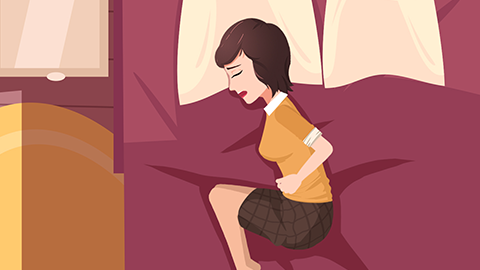How to relieve stomach pain during menstruation
Menstrual pain usually refers to dysmenorrhea. Generally, dysmenorrhea may be caused by uterine contractions, hormonal changes, pelvic inflammatory disease, endometriosis, uterine fibroids, and other factors. It is recommended to seek timely medical attention, identify the underlying cause, and then alleviate symptoms under a doctor's guidance through general treatments, medication, and other methods. A detailed explanation is as follows:

1. Uterine Contractions: During menstruation, the uterus naturally contracts to expel the endometrial lining. These physiological uterine contractions can sometimes cause pain. Applying a warm compress to the abdomen may help relax the uterine muscles.
2. Hormonal Changes: Fluctuations in estrogen and progesterone levels during the menstrual cycle, particularly increased prostaglandin levels, can cause dysmenorrhea. Applying a hot water bottle or warm towel to the abdomen can improve blood circulation, relieve uterine smooth muscle spasms, and thus reduce pain.
3. Pelvic Inflammatory Disease (PID): PID refers to infections of the female upper reproductive organs. Inflammatory irritation can cause lower abdominal pain. During menstruation, pelvic congestion worsens the inflammatory stimulation, leading to severe abdominal pain, often accompanied by fever and increased vaginal discharge. Patients may follow medical advice to use medications such as Fuyankang Capsules, Gongxuening Capsules, or Fuke Qianjin Tablets.
4. Endometriosis: This condition involves endometrial tissue growing outside the uterus, such as on the ovaries, fallopian tubes, or within the pelvic cavity. During menstruation, these displaced tissues also bleed, causing inflammation and pain. Symptoms may include pain during sexual intercourse, painful bowel movements, and menstrual irregularities. Patients may follow medical advice to use medications such as Gestrinone Capsules, Norethisterone Tablets, or Dydrogesterone Tablets.
5. Uterine Fibroids: The presence of uterine fibroids increases the size and alters the shape of the uterus, affecting its normal contractions and causing pain. Symptoms may include changes in the menstrual cycle, frequent urination, constipation, and more. It is recommended to follow medical advice regarding myomectomy to help relieve pain symptoms.
During menstruation, it is important to rest adequately, avoid strenuous exercise, and refrain from overexertion to promote better recovery.




